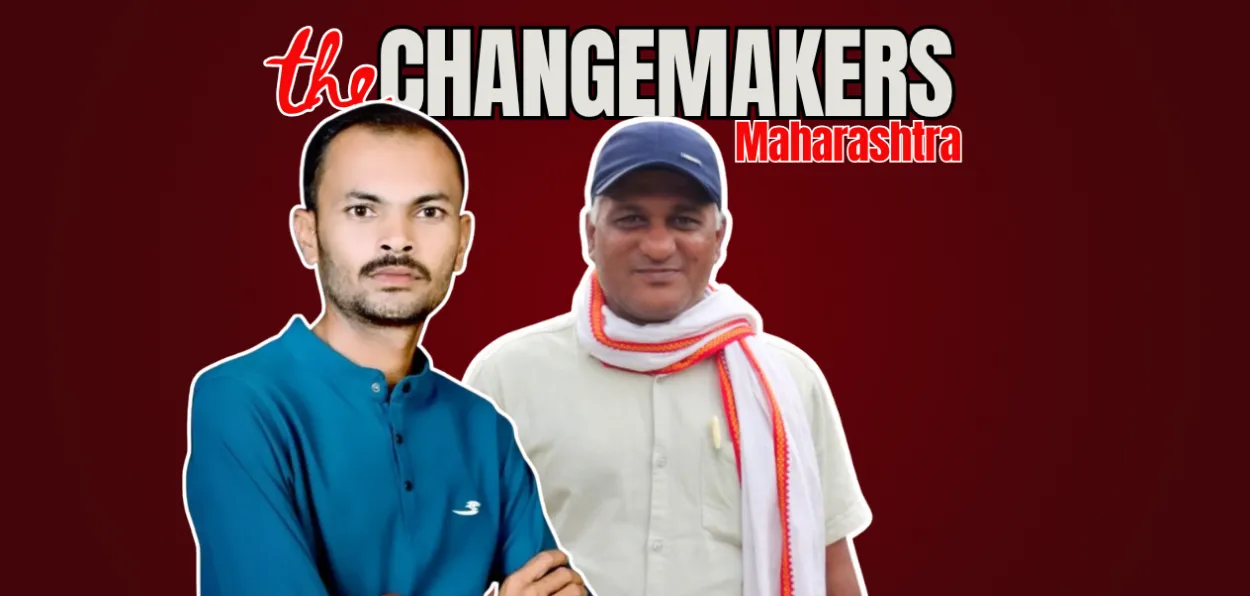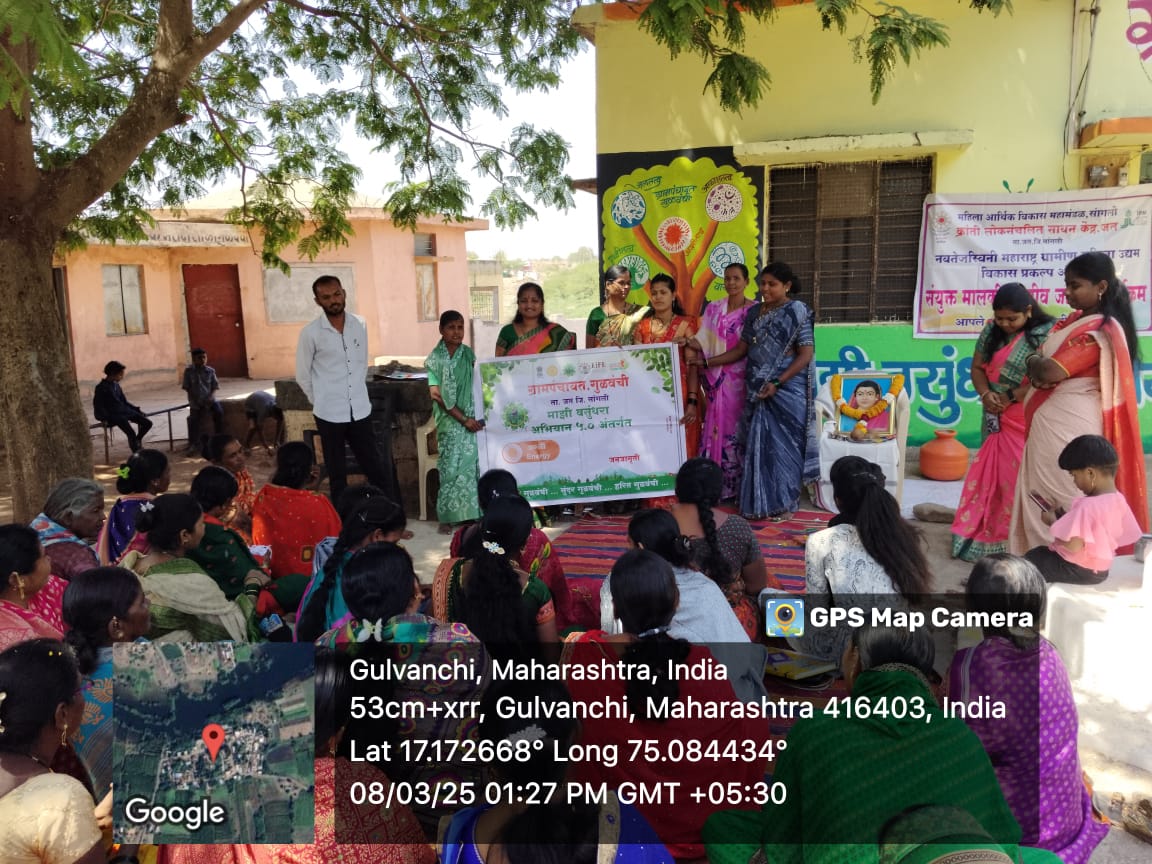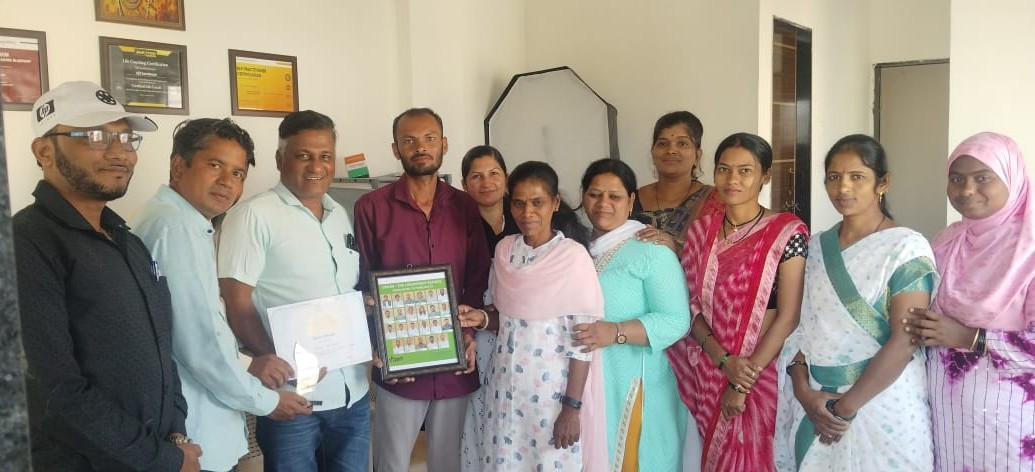
Fazal Pathan
In the heart of rural Maharashtra, two changemakers — Munir Shikalgar and Hazratali Sonikar — have ignited a quiet revolution.
Tired of politicians prioritizing symbolic religious issues over daily hardships, the duo has shifted the narrative by bringing real, lived concerns of the Muslim community to the forefront of political discourse.
Representing the Agrani Social Foundation, Munir and Hazratali visited over 300 villages across the Satara, Sangli, and Kolhapur districts.
Through these extensive interactions, they gathered the voices of ordinary people and compiled a powerful document: the Muslim Expectations Manifesto.
This manifesto is not just another election document. It encapsulates core social, educational, and economic issues affecting Muslims—such as access to quality education, employment opportunities, and the protection of constitutional rights.

Hazratali Sonikar during his door-to-door campaign
By steering the focus away from polarizing debates, Munir and Hazratali have elevated everyday struggles into matters of legislative importance.
“For real change to happen, communities need three things: education, employment, and rights,” says Munir. “These are shaped through laws, policies, and political will.”
Munir and Hazratali believe that policy must be based on public consultations. Their on-ground effort ensures that elected representatives truly understand the community’s needs before heading into legislative sessions.
Upon presenting their manifesto, the duo received encouraging responses from political candidates. Many were surprised by the grounded and urgent nature of the issues listed.
Hazratali explains, “For decades, symbolic issues have been distracted from education and livelihood concerns. This has hindered development. Our goal is to disrupt this cycle.”
 Hazratali during his public awareness campaign
Hazratali during his public awareness campaign
The manifesto also addresses misconceptions about Muslims—often spread by anti-social elements—which have hurt employment prospects. In response, many Muslim youth are turning to entrepreneurship and need government support.
The manifesto calls for greater transparency and increased access to government welfare schemes, which many in the community are either unaware of or unable to utilize effectively.
Despite 30 Assembly constituencies in Maharashtra with significant Muslim populations, Muslim representation in the legislature remains below 10. The duo sees this underrepresentation as a key concern.
“In Sangli district, 28 out of 42 villages in one taluka elected Muslim representatives in local bodies,” says Munir. “This shows our community is ready to participate—if given a fair chance.”
Through the Agrani Social Foundation, Munir and Hazratali have also launched a Constitutional Awareness Campaign, teaching values like equality, fraternity, and justice. They promote organic farming and are now aiming to collect data from 800 villages to build a comprehensive development report for submission to the Maulana Azad Financial Development Corporation.

Hazratali at a public function
They plan a residential coaching academy for civil services and other job-oriented competitive examinations for Muslim and other minority students.
The work of Munir and Hazratali is more than just advocacy—it’s a blueprint for how marginalized communities can constructively engage with democracy. Their approach is rooted in dialogue, education, and empowerment.
Their efforts have restored faith in democratic processes, encouraging the Muslim community not only to participate but also to lead with dignity and pride.
“We want our people not just to cast their vote, but to voice, to volunteer, and to envision a better future—for themselves and the nation,” Munir asserts.
ALSO READ: Marziya Pathan breaks stereotypes to lead from the front
This grassroots movement offers a replicable model for community-driven political engagement across India. It reminds us that real change begins in the smallest of villages, with determined individuals who believe in democracy not just as a system, but as a shared national responsibility.
